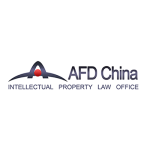Malicious trademark registration has long been a primary concern for trademark holders. The Chinese Trademark Law has played a crucial role in countering malicious trademark registrations and upholding market order since its implementation on March 1 1983.
However, despite the amendments to the Trademark Law in 1993, 2001, 2013, and 2019 that refined the legislative measures against malicious registrations, with the deep development of a market economy, a growing disparity between high trademark demand and limited resources has emerged and malicious registrations have persisted. Pre-emptive trademark registrations of unique terms related to public resources, hotspots, or sudden events, as well as names of celebrities, etc. have frequently occurred, continuously posing challenges to trademark rights protection.
China will enhance its efforts in combating malicious trademark registrations across all sectors, in order to:
Curb the trend of frequent and recurring malicious trademark registrations;
Guide market entities towards a proper awareness of trademark registration;
Promote a shift towards sensible trademark application practices;
Uphold the integrity of the trademark registration system; and
Enhance the business environment.
This commitment will be reflected in legislation, law enforcement, and other aspects.
1 Amendments to provide legal support for combating malicious trademark registration activities
1.1 Updates to the Trademark Law
An upcoming fifth amendment to the Trademark Law will introduce several new measures to further rigorously combat malicious trademark registration activities.
The current Trademark Law, in effect since November 1 2019, marks the fourth amendment to the 1983 Trademark Law. In contrast to the 2013 revised Trademark Law, the current Trademark Law places a strong emphasis on combating malicious trademark registration activities. It includes provisions such as an “application for trademark registration that is malicious and not filed for the purpose of use shall be refused” (emphasis added).
Furthermore, actions that breach these rules can now serve as legitimate grounds for objections and declarations of invalidity. The front line in combating malicious registrations has been advanced, with additional regulations dictating that trademark agencies shall not accept the entrustment if they are aware, or should be aware, that their clients' trademark applications are under the category of "applications not filed for the purpose of use". Clear penalties for violations by these agencies have also been outlined.
In light of the diverse tactics employed in malicious trademark registrations, the provisions of the current Trademark Law no longer align with practical developmental needs. For example, if a trademark is acquired through illegitimate means, although this qualifies as one of the statutory grounds for invalidation under the existing law, it is not recognised as a valid basis for opposition or explicitly categorised as a form of malicious trademark registration. In other words, under the current Trademark Law, an application for invalidation can be filed against a registered trademark on the ground of “registration acquired by unfair means”, but this ground cannot be used to file oppositions to trademarks that are pending registration. This logic clearly undermines the principle of advancing the front line in combating malicious trademark registrations.
In practice, guided by the legal principle of good faith, "trademark registration acquired by unfair means" is recognised as one of the grounds for opposition. Some examiners cite this reason when making decisions to refuse registration in cases of oppositions.
However, the lack of alignment between legal provisions and judicial practices leads to divergent examination standards among examiners. This objective discrepancy results in situations where opponents, whose oppositions are unsupported, must then initiate invalidation applications based on the same grounds. This systemic flaw not only squanders administrative resources but also highlights the significant hurdles in upholding trademark rights.
On January 13 2023, the China National Intellectual Property Administration (CNIPA) released a Draft Revision of the Trademark Law of the People's Republic of China (Draft for Comments). If adopted, this revision would represent the fifth amendment to the 1983 Trademark Law.
The draft introduces several measures to regulate malicious trademark registration activities. It not only defines applying for trademark registration through deception or other unfair means as malicious registration, leading to grounds for refusal and opposition, but also incorporates a system mandating the compulsory assignment of maliciously registered trademarks. Additionally, it specifies that legal responsibility should be assumed for infringing actions occurring after the registration but before the declaration of invalidity of maliciously registered trademarks.
The draft outlines fines for malicious trademark registrations and requires civil compensation to be paid to others for losses due to malicious trademark registration applications.
These additions underscore the continuous improvement and reinforcement of measures against malicious trademark registrations in China.
1.2 Further initiatives
The revision of supporting regulations and systems such as the Implementing Regulations of the Trademark Law and the Guidelines for Trademark Examination and Adjudication is actively promoted, thereby strengthening the coordination between legal norms at different levels.
During a press conference held by the CNIPA on February 22 2023, the vice director of the Trademark Office, Chang LI, emphasised the commitment to sustaining rigorous efforts in combating malicious trademark applications and hoarding activities. The CNIPA pledged to promptly address malicious pre-emptive registrations that jeopardise national and public interests. The comprehensive strategy aims to aggressively suppress malicious trademark registrations in all sectors, while continuously monitoring and controlling profit-driven hoarding practice.
To consolidate the recent achievements made in combating malicious trademark registrations and to enhance oversight across all sectors, the CNIPA formulated the Work Plan on Systematic Governance of Malicious Trademark Registration for Promotion of High Quality Development (2023–2025) (the 2023–2025 Plan for Governing Malicious Trademark Registrations) on April 20 2023.
This initiative prioritises "minimising the likelihood of success of malicious trademark registration activities". The plan proposes the rigorous combating of malicious trademark registration activities in accordance with the law and regulations, with the primary objective of achieving substantial advancements in regulating malicious trademark registrations by 2025.
The above highlights China's firm and ongoing stance in combating malicious trademark registrations across all sectors. Refinements to normative documents will feature measures targeting such registrations in the Implementing Regulations of the Trademark Law. This includes further detailing what constitutes "serious circumstances" regarding malicious trademark registration applications and scenarios in the compulsory assignment system that could lead to confusion, along with their implementation in relevant departmental regulations and normative documents to clarify operational rules.
The dynamic refinements of the Guidelines for Trademark Examination and Adjudication will involve intensifying research efforts on the governance challenges posed by malicious trademark registrations, timely formulation of pertinent policy documents, and the exploration of innovative examination rules within legal bounds.
2 Enhancing the enforcement of laws and regulations
The 2023–2025 Plan for Governing Malicious Trademark Registrations outlines that local intellectual property offices and trademark offices must strictly comply with laws, regulations, and rules such as the Trademark Law, the Implementing Regulations of the Trademark Law, several provisions on regulating trademark application and registration behaviour, regulations on the supervision and administration of trademark agencies, and the Provisions on the Determination and Protection of Well-Known Trademarks.
They are mandated to lawfully refuse registrations, declare invalidity, block assignments, and disallow pledge registrations for malicious trademark applications. Cases involving individuals engaging in malicious pre-emptive trademark registration contrary to good faith principles and trademark agencies involved in illegal practices are to be forwarded to the relevant authorities for proper investigation. Approvals will not be granted under the law for cases where numerous malicious trademark registrations are pre-emptively pursued and subsequently assigned for profit.
Regarding the act of maliciously applying for trademark registration, the current Trademark Law only broadly outlines administrative penalties such as warnings and fines and lacks provisions on specific fine amounts or civil liability. However, in the forthcoming fifth revision of the Trademark Law, with respect to malicious trademark registration applications, a fine of up to CNY 250,000 is expressly defined, alongside the introduction of administrative penalties involving the confiscation of illegal gains. Furthermore, civil liability is broadened to encompass compensation claimed by affected individuals and compensation claimed by prosecuting authorities in public interest lawsuits concerning activities that undermine national interests, public interests, and related concerns.
In addition to expanding the application scope of administrative measures such as disapproval of registration and declaration of invalidity, as well as increasing administrative and civil actions against malicious trademark registration activities, there has been an increase in cases where courts, in judicial proceedings involving obvious wilful infringement, exceed the statutory maximum compensation limit of CNY 5 million and apply punitive damages to enhance the crackdown on malicious trademark registrations. For example, at the end of 2023, the Beijing Intellectual Property Court unveiled the Top Ten Typical Cases of Malicious Trademark Registrations; among which, a liquor company registering trademarks similar to the renowned ‘Yege’ series trademarks incurred a ruling mandating the defendant to compensate the plaintiff for economic losses totalling CNY 10 million.
As a nation governed by statutory laws, China has made substantial legislative strides in combating malicious trademark registrations, offering explicit legal foundations and policy backing for addressing these issues and protecting the rights of all parties involved. It is essential for rights holders and trademark professionals not only to understand and effectively utilise new legal provisions but also to move beyond mere adherence to legal texts. Legal statutes shape social interactions, while societal evolution influences adjustments to legal frameworks, establishing a mutually beneficial relationship between law and society.
3 Considerations in the use of trademarks
Given China's continued and stringent crackdown on malicious trademark registrations, along with enhanced regulatory measures, the following recommendations are put forth by the authors for businesses to consider when applying for a trademark registration or acquiring trademarks from others:
Enterprises applying for trademarks should promptly register trademarks aligned with their operational requirements to prevent the trademarks they have already put in use from being pre-emptively registered by others. Simultaneously, companies should uphold the principles of honesty and integrity, and govern their trademark application and registration processes in strict compliance with legal mandates. Trademark applications should exhibit reasonableness and legitimacy to steer clear of penalties related to suspected trademark infringement.
If an enterprise aims to acquire trademarks from a third party through assignment, it is crucial to examine whether the trademarks being acquired have any defective titles. In practice, if the assigner is involved in malicious trademark squatting, there is a hidden risk that the assigned trademark could still face invalidation even after a successful assignment.
Enterprises should raise awareness of trademark usage and uphold standardised records of promotional materials, sales contracts, invoices, and other evidence of use. By presenting such evidence of use, enterprises can seize the opportunity to defend their rights when confronting instances of trademark squatting by others.
4 Final thoughts on China’s efforts to combat malicious trademark registrations
Combating malicious trademark registrations is an ongoing effort, and in China, the measures taken to combat such registrations and the punitive fines imposed reflect a trend towards more stringent crackdowns. This approach is geared towards upholding a healthy and well-regulated trademark registration system, nurturing a supportive intellectual property legal framework, and safeguarding the legitimate interests of trademark rights holders.














